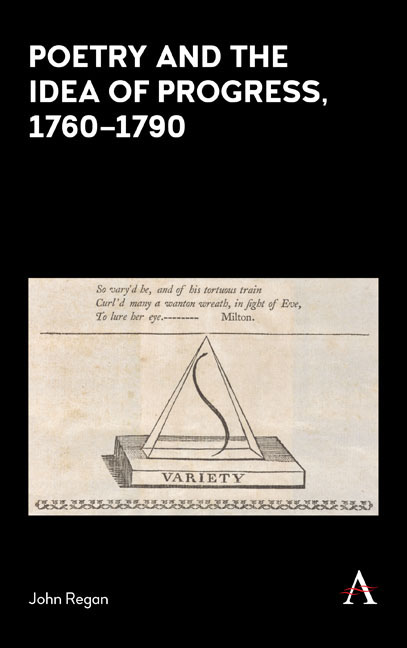Book contents
- Frontmatter
- Contents
- List of Figures
- Acknowledgements
- Introduction
- 1 Progress by Prescription
- 2 Thomas Sheridan and the Divine Harmony of Progress
- 3 ‘There Is a Natural Propensity in the Human Mind to Apply Number and Measure to Every Thing We Hear’: Monboddo, Steele and Prosody as Rhythm
- 4 ‘[C]ut into, distorted, twisted’: Thomas Percy, Editing and the Idea of Progress
- 5 ‘Manners’ and ‘Marked Prosody’: Hugh Blair and Henry Home, Lord Kames
- Afterword: Rude Manners, ‘Stately’ Measures: Byron and the Idea of Progress in the New Century
- Conclusion
- Notes
- Bibliography
- Index
2 - Thomas Sheridan and the Divine Harmony of Progress
Published online by Cambridge University Press: 21 June 2018
- Frontmatter
- Contents
- List of Figures
- Acknowledgements
- Introduction
- 1 Progress by Prescription
- 2 Thomas Sheridan and the Divine Harmony of Progress
- 3 ‘There Is a Natural Propensity in the Human Mind to Apply Number and Measure to Every Thing We Hear’: Monboddo, Steele and Prosody as Rhythm
- 4 ‘[C]ut into, distorted, twisted’: Thomas Percy, Editing and the Idea of Progress
- 5 ‘Manners’ and ‘Marked Prosody’: Hugh Blair and Henry Home, Lord Kames
- Afterword: Rude Manners, ‘Stately’ Measures: Byron and the Idea of Progress in the New Century
- Conclusion
- Notes
- Bibliography
- Index
Summary
Part One: Harmony Articulated
If you ask a scholar what he means by the word, Quantity, he will tell you, that it is a term in prosody which relates to the length or shortness of syllables. If you ask him to define the difference between a long and a short syllable, he will tell you, that a long one is double the length of a short one. Now the plain meaning of this, is that it takes up double the time in sounding that a short one does; and of this ear alone can be the judge. But this is an idea which never entered into the scholar's head; for I will undertake to show, that it never was taken into consideration by any of our writers upon the article of quantity, as they have all endeavoured to adjust the proportion of length and shortness in syllables, by rules which have no reference to the ear.
Like all other elocutionists, actor Thomas Sheridan asks us to listen. In this passage from the second part of his Lectures on the Art of Reading (1775; hereafter the Lectures) he observes that in his time, the question of the duration of stressed and unstressed syllables in lines of poetry is, for most, broached without listening to poems being read aloud. Sheridan sees scholarship's deafness as a regrettable recent phenomenon, and, as a response to it, along with other elocutionary theorists of poetry, Edward Bysshe, Isaac Watts, John Rice, Allan Ramsay the Younger, Joshua Steele and fellow actor James Mason, he seeks to restore the aural sense to the centre of discussions about versification. For Sheridan, only when we listen to poetry being performed verbally, can we recognize its urgency and validity as a form of expression that reveals to humankind just what progress is available to it. Sheridan's elocutionist prosody is shaped by two traditions of thought, both of which have ramifications for his thinking on how poetry and progress interrelate. On the one hand, he extends a tradition of Christian thinking on human progress that posits that human, earthly endeavour can bring about spiritual elevation.
- Type
- Chapter
- Information
- Poetry and the Idea of Progress, 1760 , pp. 47 - 74Publisher: Anthem PressPrint publication year: 2018



